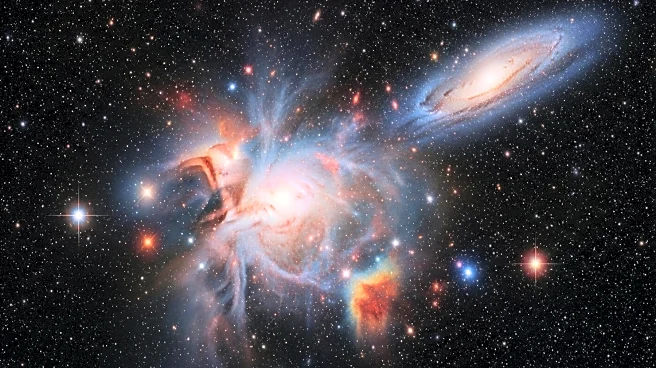What's Happening?
Astrophysicists are investigating the possibility that dark energy, a mysterious force driving the universe's accelerated expansion, may be evolving over time. This hypothesis challenges the widely accepted notion that dark energy is constant. Recent studies, including those by University of Chicago's Josh Frieman and Anowar Shajib, suggest that evolving dark energy models, potentially involving ultra-light axions, better fit current observational data. These models propose that dark energy density decreases over time, influencing the universe's expansion history. The research is based on data from the Dark Energy Survey and other cosmological probes.
Why It's Important?
The evolving dark energy hypothesis could significantly alter our understanding of the universe's future. If dark energy is not constant, it may affect the rate of cosmic expansion, potentially avoiding extreme scenarios like the Big Rip or Big Crunch. This research could lead to a paradigm shift in cosmology, offering insights into the fundamental nature of the universe. It also highlights the need for further observational data to confirm these models, which could impact future space missions and the development of new astronomical instruments.
What's Next?
Future surveys, such as those conducted by the Dark Energy Spectroscopic Instrument and the Vera Rubin Observatory, are expected to provide more data to test these evolving dark energy models. These observations will help determine whether dark energy is indeed changing over time or if the current models need revision. The results could influence theoretical physics and cosmology, potentially leading to new discoveries about the universe's composition and behavior.









